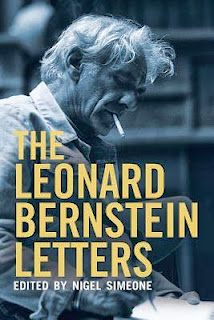By Virginia Waring
Genre: early pop
 "I scream, you scream, we all scream for ice cream!"
"I scream, you scream, we all scream for ice cream!"I know very little about Fred Waring and the Pennsylvanians. What I do know is that my father liked them. When I was a kid he would start singing the above ditty every time we went into a Baskin-Robbins. It is amazing that I survived something like that.
The other thing I know about Fred Waring is that there is a major thoroughfare just down the street from me that dissects the Palm Springs area called Fred Waring Dr. to which most people, on telling them to make a right on Fred Waring Dr., says "Who's Fred Waring?"
Fred Waring had a very popular band in the 20s and onward. Mr. Waring continued into the 70s with his band yet they are virtually unknown now. When I saw this now out-of-print biography in the library I decided to find an answer to the question, "Who is Fred Waring?"
When people write the history of American popular music, you will see names like Duke Ellington, Louis Armstrong, and Jelly Roll Morton. These men are truly innovative giants in American music. But what the history books do not tell you is that the bulk of Americans back in the early 20th century didn't fill their pop charts with music of these giants. The really popular musicians were men like Paul Whiteman, Rudy Vallee, Guy Lombardo and Fred Waring. Like today, the bulk of American don't listen to jazz, blues, or any of the other genres that are deemed quality American music. The pop music of the masses is a mainstream sound that usually was geared to the lowest common denomination and often sounded like it was manufactured. You could dance to it and not have to think too hard. Just like the mainstream pop music of today. If Fred Waring was alive today, he would be Justin Beiber.
Fred Waring's music is pleasant and very professional. His gamut ran from light classic to traditional American folk to dance tunes to novelty numbers, all well arranged, cotton candied, and geared to sound alike. Virginia Waring, the author of this book and Fred 's third and last wife, gives us a fairly comprehensive account of Waring's life. Waring's most important contribution to pop music according to Virginia Waring is that he popularized the chorale or glee club sound (and you thought that was done by the TV show GLEE didn't you?) and combined it with an orchestra and big band sound.In the foreword which is written by the great chorale master Robert Shaw who was himself a Pennsylvanians in his early years says, "It is certain to me that tours in the United States of the Bach B Minor Mass and the Mozart Requiemwould not have been possible had not Fred Waring help simulated and helped to create an audience for choral music." I would find that an utterly ridiculous statement except for the fact that it comes from the man who did present classical choral music to the modern masses.
It would have been nice if Ms Waring spent some part of the book on why she thinks that Waring's music is so important. She doesn't but she does spend much time on everything else and mostly on his business sense, which was quite remarkable, and his family. But don't expect any gossip. According to this book, The Warings makes the Nelsons seem like the Osbournes. There is even a full chapter that is written solely to prove that Mr. Waring was not anti-Semitic! By the time the book was through, I was convinced that Waring's major claim to music is that he learned how to make a major corporation out of a musical organization. And that is still a talent you can see in our music moguls today.
There was one amazing fact I learned. Fred Waring invented the Waring blender and used it to make daiquiris on the road for Rudy Vallee!
There was another thing I found rather curious. If you look at the musicians that came out of the bands of the 30s and 40s including the highly popular easy listening Paul Whiteman Orchestra, you would have an impressive list of some of the best jazz and pop musiciana to grace the American music scene in the mid 20th century. In perusing the names of musician that came out of the Waring Orchestra I found no memorable names with the exception of Robert Shaw.
One very nice touch to this book is an accompanying 28 track CD of the music of Fred Waring and the Pennsylvanians.
Overall, this biography is very entertaining.It does give you a good look at the music entertainment scene in the early 20th century. But I do not think it really add much to the mosaic of American music.
And that ice cream song? Here it is!














